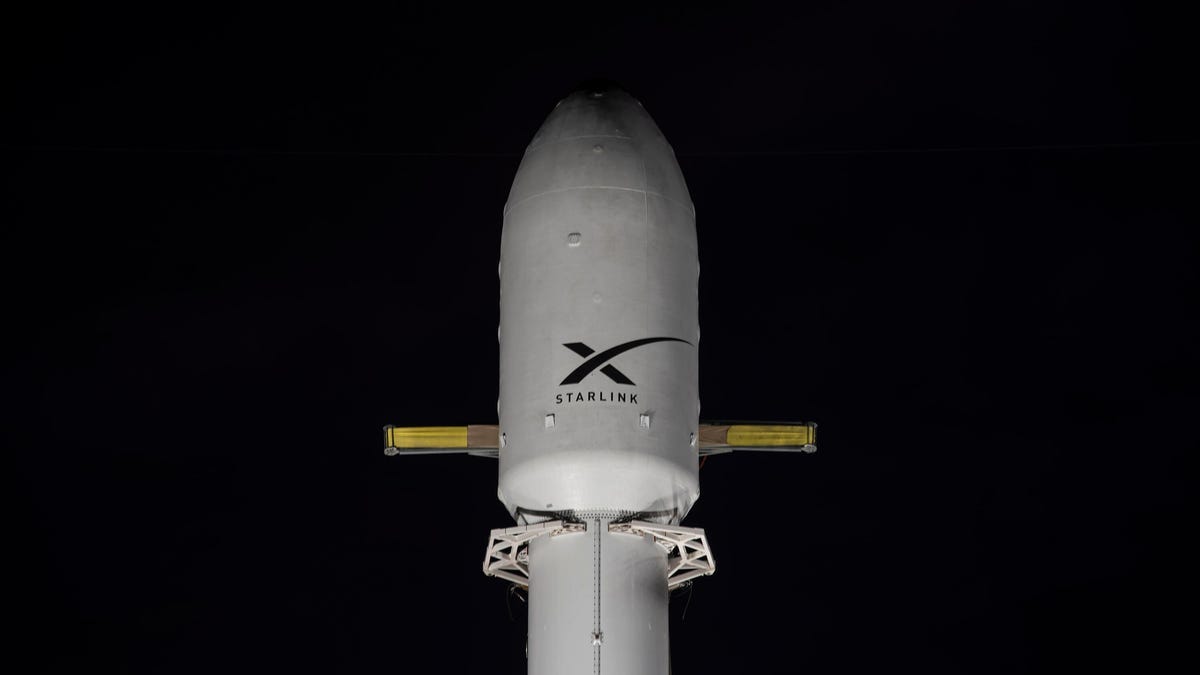Elon Musk details Starlink home broadband that you simply plug in
SpaceX's upcoming high-speed internet offering is coming soon.

The fairing shielding 60 Starlink satellites awaits launch.
Pulling high-speed, low latency internet down into your home from space courtesy of Elon Musk and SpaceX will be as simple as putting a "UFO-on-a-stick" on a roof, fence, table or anywhere else with a clear view of the sky.
That's what Musk claimed on Twitter on Tuesday, alongside new images of the receiver that SpaceX is refining for use with its Starlink satellite broadband, which is expected to beginning offering service in the northern US and Canada later this year.
"Starlink terminal has motors to self-orient for optimal view angle. No expert installer required," Musk tweeted. "Just plug in & give it a clear view of the sky. Can be in garden, on roof, table, pretty much anywhere, so long as it has a wide view of the sky."
Starlink terminal has motors to self-orient for optimal view angle. No expert installer required. Just plug in & give it a clear view of the sky. Can be in garden, on roof, table, pretty much anywhere, so long as it has a wide view of the sky.
— Elon Musk (@elonmusk) July 14, 2020
The small satellite dish has been dubbed a "UFO-on-a-stick" for, well, obvious reasons. It appears to be smaller than the dishes used for many other satellite services, which often require professional installation and orientation.
SpaceX is already operating over 500 of the orbiting routers as part of its grand plan to eventually launch tens of thousands of the small satellites in order to blanket the Earth with broadband access.
It's a project that has been controversial since the bright reflection of the satellites began to interfere with the work of astronomers almost immediately after the first Starlink launch. The company now plans to launch all satellites going forward with sunshades called "VisorSat" that reduce their brightness.
An exact start date for the service has not yet been announced, but a website is already live and collecting emails from potential customers. Musk says it "will take less than a minute to order on Starlink.com when it goes live."

